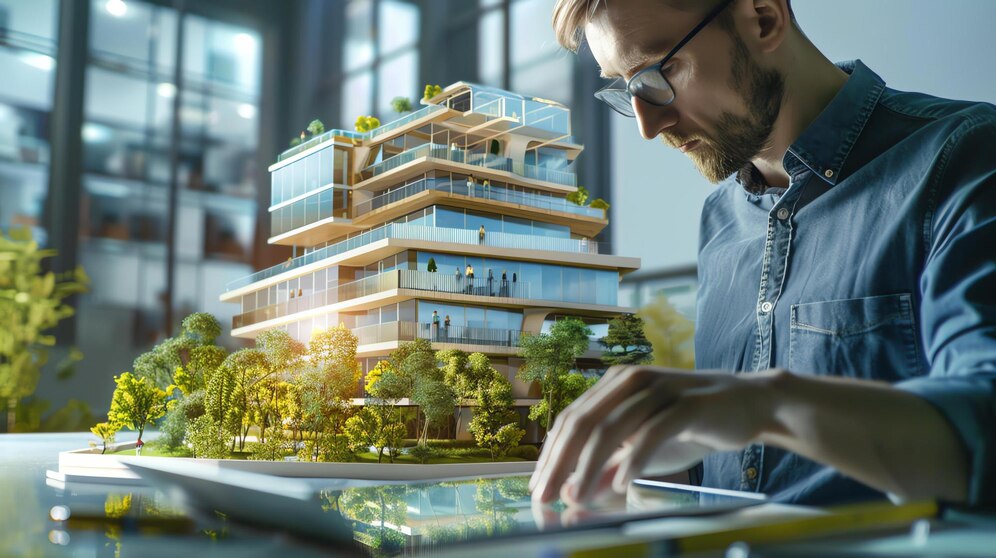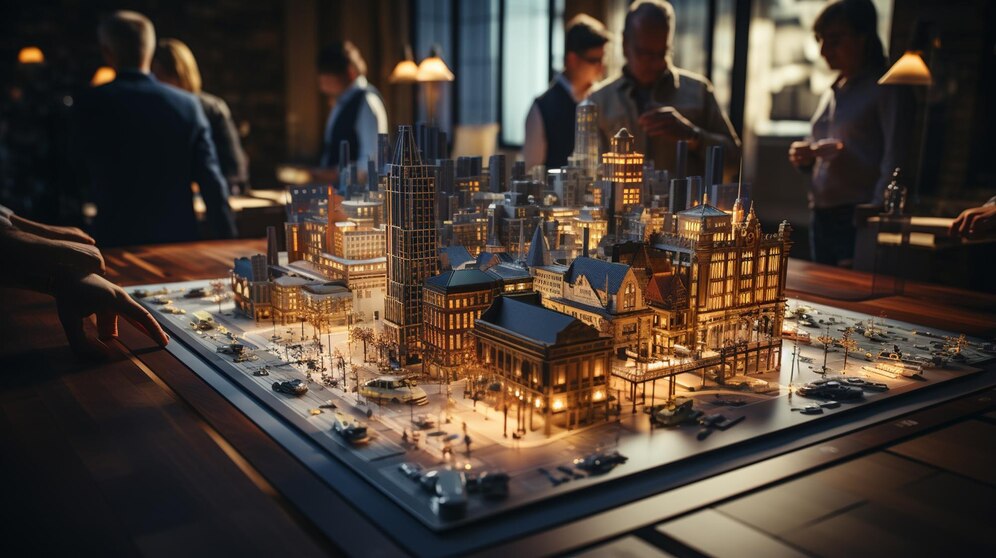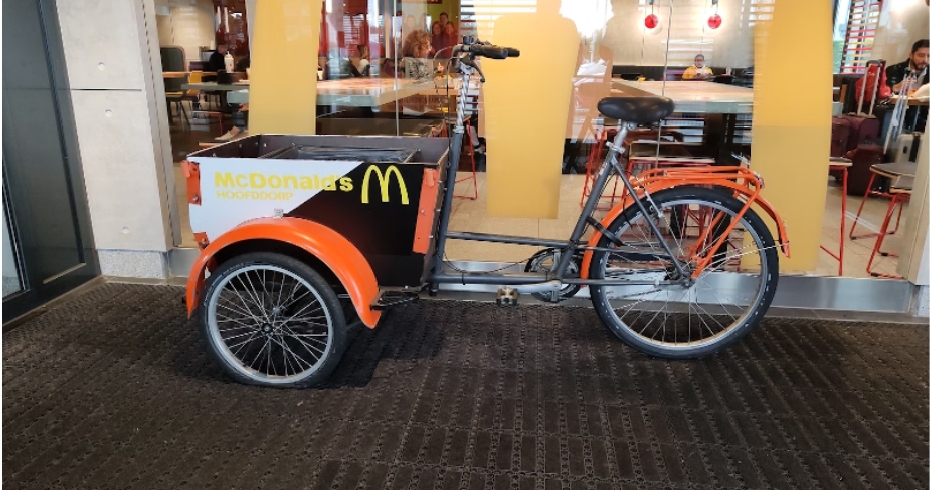Stichting Bouwresearch (SBR) stands as a pivotal institution in the construction industry, dedicated to pioneering research and promoting innovative practices. Established to address the complex challenges of post-war construction, SBR has evolved into a beacon of advancement, driving standards and quality across the sector. This article delves into the rich history, transformative research, and impactful collaborations of SBR. Join us in exploring how this esteemed organization shapes the future of construction through innovation, sustainability, and partnerships. Discover the profound influence of SBR on modern construction methodologies and the industry at large.
Historical Overview and Foundational Goals
The origin of Stichting Bouwresearch (SBR) traces back to the post-war era, marked by a pressing need to rebuild and enhance construction standards. Established to meet these needs, SBR began its journey with a clear focus on addressing the challenges of efficiency, standardization, and quality in building practices.
Over the years, SBR has seen significant transformations. What started as an initiative to solve immediate post-war challenges has grown into an influential entity in the construction industry. The evolution of SBR is characterized by continuous growth and adaptation to new technologies and methodologies, which have been critical in shaping modern construction practices.
From its inception, SBR’s mission has been clear: to advance the construction industry through research and innovation. The organization has consistently aimed to support the industry’s development by providing insights and data that foster improved construction techniques and practices. This goal has guided SBR through decades of change, helping it remain relevant and effective in its contributions.
SBR’s foundational objectives have always been aligned with the needs of the construction sector. By promoting research that leads to practical and scalable solutions, SBR has played a key role in advancing construction methodologies that are not only effective but also sustainable and adaptable to future challenges.
Research and Development Focus
Stichting Bouwresearch (SBR) has consistently been at the forefront of research and development in the construction industry. The focus on innovative construction materials and methodologies is a hallmark of SBR’s work, driving the industry toward more sustainable and efficient practices.

A significant area of SBR’s research involves the development of advanced construction materials. These materials are designed to meet the dual demands of durability and environmental friendliness. For instance, the use of sustainable and eco-friendly materials has not only reduced the environmental footprint of construction projects but also enhanced the energy efficiency of buildings.
In addition to materials, SBR has been instrumental in promoting smart building technologies. These technologies integrate digital and sensor-based tools to create buildings that are more adaptable and responsive to the needs of their occupants. From automated climate control systems to advanced safety features, these technologies represent the future of construction.
Robotics and automation have also been significant focal points for SBR. The integration of robotics in construction processes has improved precision and speed while reducing labor costs and safety risks. Automation extends from robotic arms used for bricklaying to drones for surveying and inspection, showcasing SBR’s commitment to cutting-edge technological applications in construction.
Each of these research areas reflects SBR’s dedication to not only advancing construction technology but also to solving practical problems faced by the industry. By focusing on both innovation and practical application, SBR ensures that its research has a real-world impact, improving construction practices and outcomes across the globe.
Sustainability and Environmental Initiatives
Stichting Bouwresearch (SBR) places a strong emphasis on promoting sustainable construction practices and environmental stewardship within the industry. This commitment is reflected in the organization’s numerous initiatives and projects aimed at reducing the ecological impact of construction activities.
A major focus for SBR is the development and application of sustainable building practices. This includes advocating for the use of renewable materials and technologies that conserve energy and resources. For example, SBR supports projects that incorporate solar panels, green roofs, and energy-efficient heating and cooling systems into building designs. These technologies not only reduce the carbon footprint of buildings but also contribute to healthier living environments.
Additionally, SBR has been a leader in advancing the use of eco-friendly materials in construction. These materials are selected for their lower environmental impact, such as reduced greenhouse gas emissions and less waste production. Materials like recycled concrete and reclaimed wood have become more popular through SBR’s research and advocacy, helping the industry move towards more sustainable practices.
The organization also focuses on resilience and adaptation strategies to address the challenges posed by climate change. This includes designing buildings that can withstand extreme weather conditions and environmental stressors. By integrating resilience into construction planning, SBR ensures that buildings are not only more sustainable but also more adaptable to changing environmental conditions.
Through these efforts, SBR demonstrates its commitment to leading the construction industry towards a more sustainable and environmentally responsible future. Each initiative and project under this focus area showcases SBR’s dedication to ecological preservation and the promotion of sustainable development within the construction sector.
Partnerships and Collaborative Efforts
Stichting Bouwresearch (SBR) recognizes the importance of collaboration in driving innovation and advancement within the construction industry. As such, SBR has cultivated a network of partnerships spanning industry stakeholders, academic institutions, and governmental bodies to foster a collaborative environment that encourages shared learning and mutual growth.

Industry Partnerships
SBR works closely with construction companies, material suppliers, and technology developers. These partnerships facilitate the practical application of research findings and the integration of innovative technologies in real-world construction projects. By working directly with industry players, SBR ensures that its research remains aligned with current market needs and contributes directly to enhancing construction practices.
Academic and Research Collaborations
Academic institutions are crucial partners for SBR, providing access to cutting-edge research, advanced methodologies, and a pool of emerging talent. Collaborations with universities and research institutes enhance the scientific rigor of SBR’s projects and bring fresh perspectives to the challenges facing the construction industry. These partnerships often result in joint research initiatives and publications that push the boundaries of what is possible in construction science.
Governmental and Regulatory Collaborations
Engaging with government agencies helps SBR align its initiatives with regulatory frameworks and secure funding for pioneering projects. These collaborations also facilitate the development of standards and policies that promote safety, sustainability, and efficiency across the construction industry. By influencing policy-making, SBR plays a pivotal role in shaping a regulatory environment that supports innovative construction practices while ensuring public safety and environmental protection.
International Affiliations
SBR extends its collaborative efforts beyond national borders, engaging with international organizations to exchange knowledge and best practices. This global perspective enriches SBR’s research projects and introduces diverse approaches to common challenges. International collaborations also open doors to multi-country initiatives, expanding the impact of SBR’s work on a global scale.
Through these multifaceted partnerships, SBR enhances the collective knowledge of the construction industry, fostering an environment where innovation thrives. These collaborations not only accelerate the development of new technologies and methodologies but also ensure that SBR remains at the forefront of the construction research field.
Services and Impact on the Construction Sector
Stichting Bouwresearch (SBR) offers a broad array of services that significantly influence the construction industry. These services encompass research, consultancy, and the dissemination of knowledge, all aimed at enhancing industry practices and outcomes. Through its efforts, SBR has made substantial contributions to the Dutch construction sector and beyond, shaping both local and international construction landscapes.
Research and Consultancy
At the core of SBR’s services is its research and consultancy in cutting-edge construction methodologies and materials. SBR conducts detailed studies that assess the performance, safety, and sustainability of new construction practices. These studies help in identifying viable new techniques that can be adopted by the industry at large. Moreover, SBR’s consultancy services are sought after for expert advice on complex projects, providing tailored solutions that address specific challenges faced by construction firms.
Educational and Training Programs
SBR places great emphasis on education and training, offering programs that equip professionals with the latest skills and knowledge in construction. These programs cover a range of topics, from basic construction principles to advanced technological applications, such as smart building design and sustainability practices. By fostering a well-educated workforce, SBR ensures that industry professionals are prepared to implement the latest and most effective construction techniques.
Case Studies and Demonstrations
To showcase the practical applications of its research, SBR frequently publishes case studies. These case studies provide real-world examples of how innovative construction methods and materials can be applied to improve building performance and efficiency. Additionally, SBR organizes live demonstrations of new technologies, giving industry professionals firsthand experience with cutting-edge tools and techniques.
Policy Development and Standard Setting
SBR also plays a vital role in developing industry standards and policies. By collaborating with regulatory bodies, SBR helps create guidelines that ensure construction practices meet the highest standards of safety, quality, and environmental stewardship. These standards not only promote best practices but also ensure that the industry evolves in alignment with legislative requirements and societal expectations.
Impact Assessment
Through ongoing monitoring and evaluation, SBR assesses the impact of its services on the construction industry. This involves analyzing the adoption rates of recommended practices and technologies, as well as their effectiveness in improving construction outcomes. These assessments help SBR refine its offerings and ensure that its contributions continue to meet the needs of the industry.
By providing these services, SBR maintains its status as a leader in the construction research field, driving innovation and excellence across the industry. The direct impact of SBR’s work is evident in improved construction practices, higher standards of building performance, and a more sustainable approach to construction across the globe.
Future Prospects and Vision
Stichting Bouwresearch (SBR) looks forward to a future where the construction industry continues to grow in innovation and sustainability. The organization’s vision encompasses several key areas, each aiming to foster advancement and adaptability within the sector.

Embracing Emerging Technologies
A primary focus for SBR moving forward is the increased integration of emerging technologies into construction practices. This includes further development in areas like artificial intelligence, machine learning, and the Internet of Things (IoT). These technologies are expected to make construction processes more efficient, accurate, and less labor-intensive, while also enhancing the safety and durability of structures.
Sustainability and Climate Resilience
With environmental concerns becoming increasingly urgent, SBR is committed to promoting sustainable construction practices that not only reduce the environmental impact but also increase the resilience of buildings to climate change. This involves developing new materials and methods that support energy efficiency, resource conservation, and adaptability to environmental stresses.
Global Collaboration and Influence
SBR aims to expand its influence and collaborations beyond national borders, fostering global partnerships that address universal challenges in the construction industry. By sharing knowledge, resources, and best practices internationally, SBR seeks to elevate construction standards worldwide and respond more effectively to global construction trends and needs.
Education and Community Engagement
Expanding educational programs and community engagement remains a critical part of SBR’s future strategy. The goal is to cultivate a well-informed community of construction professionals and stakeholders who are equipped to implement and advocate for advanced, sustainable construction methods. This includes extending training programs to a broader audience and increasing public awareness of sustainable building benefits.
Anticipating and Adapting to Industry Changes
As the construction industry evolves, SBR is prepared to continuously adapt its strategies and focus areas to meet new challenges and opportunities. This proactive approach ensures that SBR remains at the forefront of research and innovation, ready to guide the industry through changes and advancements.
Through these initiatives, SBR is set to reinforce its role as a leader in construction research and innovation, shaping the future of the industry in ways that are sustainable, efficient, and forward-thinking. The organization’s enduring commitment to improving construction practices worldwide promises to bring about significant advancements in the quality, sustainability, and efficiency of construction projects.
Conclusion
Stichting Bouwresearch (SBR) stands as a vital contributor to the construction industry, continuously driving advancements through its dedicated research, strategic partnerships, and commitment to sustainability. By focusing on innovation, technology integration, and global collaboration, SBR not only enhances construction practices but also prepares the industry for future challenges and opportunities. As SBR continues to support the construction sector through education, policy development, and community engagement, its impact extends beyond immediate projects to shape the broader landscape of construction worldwide. The ongoing efforts of SBR promise to keep the industry adaptable, sustainable, and forward-looking, ensuring a robust framework for future construction endeavors.
FAQs
1. What is the primary objective of Stichting Bouwresearch?
The main goal of SBR is to advance the construction industry through ongoing research and innovation. The organization focuses on developing sustainable construction practices and materials, enhancing building techniques, and integrating new technologies to improve overall construction efficiency and sustainability.
2. How can one get involved with Stichting Bouwresearch?
Individuals and organizations can engage with SBR through various channels including participating in research projects, attending seminars and training programs, or collaborating on innovation-driven initiatives. Membership options are also available for those looking to have a closer association with the organization and its activities.
3. What types of research does Stichting Bouwresearch focus on?
SBR conducts a wide range of research focusing on everything from sustainable building materials and energy efficiency to smart building technologies and automation in construction. This research helps develop new standards and practices that positively impact the construction industry.
4. How does Stichting Bouwresearch collaborate with other industries or sectors?
SBR works closely with construction companies, technology developers, academic institutions, and government bodies to foster a collaborative approach to construction challenges. These partnerships help facilitate the practical application of research findings and support the development of industry-wide standards.
5. What are the future directions for Stichting Bouwresearch?
Looking ahead, SBR plans to continue expanding its research on emerging technologies like AI and IoT in construction. The organization also aims to enhance global collaborations to address common challenges in the construction industry and promote sustainability and resilience in building practices across the world.





